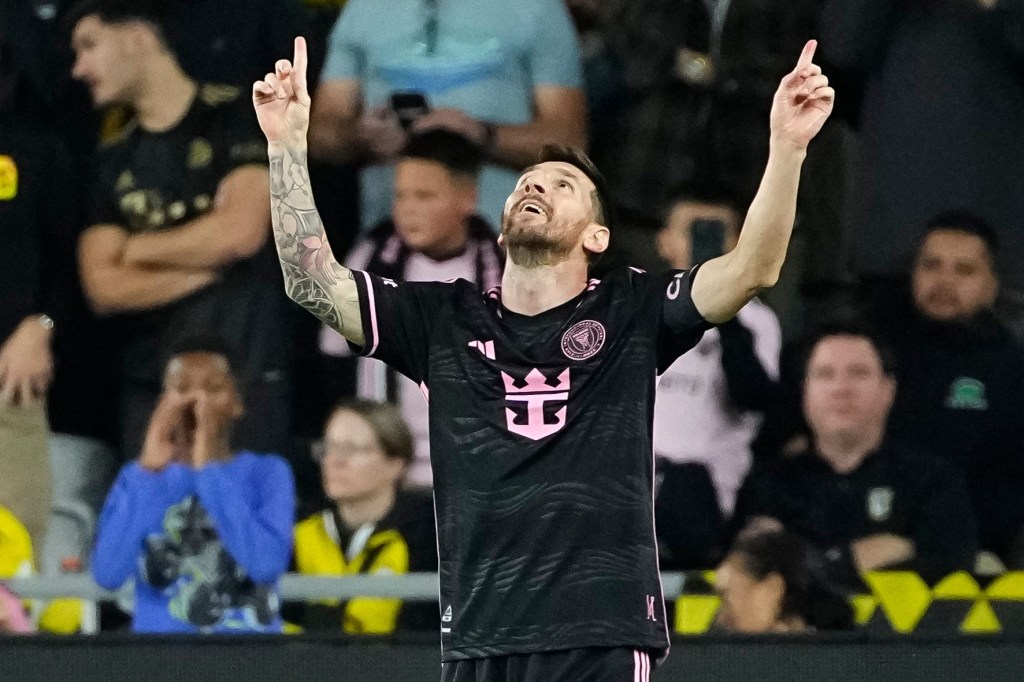The 2024 Major League Soccer season wraps up this Saturday with a showdown between New York and Los Angeles in the MLS Cup final. For the majority of leagues, this would represent a fantasy matchup—tapping into fan bases from the top two media markets in the U.S., similar to this fall’s Yankees-Dodgers World Series. The […]

The 2024 Major League Soccer season wraps up this Saturday with a showdown between New York and Los Angeles in the MLS Cup final.
For the majority of leagues, this would represent a fantasy matchup—tapping into fan bases from the top two media markets in the U.S., similar to this fall’s Yankees-Dodgers World Series. The lone hitch for MLS: Its most prominent star, recently named 2024 league MVP Lionel Messi, does not compete for the Red Bulls or Galaxy. He leads Inter Miami, which was eliminated in the first round after suffering a defeat in a three-game series against Atlanta United 2–1.
A title game featuring Messi would likely have attracted more viewers than any other team combination. Messi’s MLS postseason debut in October became Apple TV’s most-watched sporting event ever. (The streaming service, which is nearing the end of the second season of a 10-year, $2.5 billion media-rights agreement, rarely discloses specific ratings figures.) Fans have fully embraced Miami: The club’s Instagram followers skyrocketed from one million prior to Messi’s arrival in 2023 to over 17 million—surpassing all U.S. professional teams except the Warriors and Lakers.
Similar to many playoff matches this year, the MLS Cup final will be broadcast simultaneously on linear channels Fox in the U.S. and TSN in Canada, in addition to streaming on Apple TV at 4 p.m. ET on Saturday. Ratings may reflect Messi’s absence, yet the league is still thriving in other important revenue-generating areas.
MLS reported that sponsorship revenues at both the league and club levels increased by 13% in 2024. Team sponsorship income in 2024 was estimated to reach $665 million, according to SponsorUnited’s most recent MLS marketing and partnerships report.
“The wins and losses—from a league standpoint, a national perspective, a global influence of the league and how we engage with corporate partners—it doesn’t significantly shift the landscape,” MLS EVP and CRO Carter Ladd informs Front Office Sports.
Attendance has also been a significant component. MLS indicates it has attracted a record 12.1 million fans to games in 2024, making it the second-most-attended league globally, trailing only the Premier League, which had over 14 million during its latest full season (2023–2024). “I think that might surprise many people,” Ladd remarks.

Adam Cairns/Image Images
Notably, Inter Miami has been instrumental in attracting some of the largest crowds in MLS history, gathering over 72,000 fans in Kansas City during the regular season and exceeding 68,000 in Atlanta during the playoffs. The league is on track to shatter that overall attendance record in 2025, particularly with Messi expected to return for another season at Inter Miami.
Another pivotal element will be an extra round of expansion, which Ladd refers to as a “great accelerator” in the league’s progress over the last decade. San Diego FC is joining as the league’s 30th franchise, paying a historic $500 million expansion fee to the other 29 MLS ownership groups. The team will host its home games at the 35,000-seat Snapdragon Stadium, which is already the venue for the NWSL’s Wave and San Diego State’s football team. A successful inaugural season in San Diego could help MLS reach a cumulative attendance of 13 million fans next year.
Yet many are contemplating the distant future, including Ladd. In 2026, the FIFA World Cup will take place in the U.S., Canada, and Mexico. The league and various soccer stakeholders are expecting a resurgence of interest in the sport following the tournament—potentially leveraging this by aligning the league more closely with the top global soccer competitions.
MLS, which typically operates from spring to fall, is considering transitioning its schedule to align with the global soccer fall-to-spring format. However, nothing is immediate, although commissioner Don Garber mentioned on Friday that the league is evaluating this change “more than ever before.”
The impending 2026 World Cup presents an ideal opportunity for MLS to modify its calendar. The league has already sanctioned a summer break for that year, which has not been typical in previous World Cup seasons. However, if a significant shift were to occur, MLS would likely conduct its 2025 season as usual, then initiate a new scheduling format in fall 2026. (MLS opted not to comment on this.)
Regardless of the schedule, ongoing innovation will be crucial for MLS after the World Cup as Messi, 37, approaches retirement, and league expansion decelerates. For now, there’s still a champion waiting to be declared.














